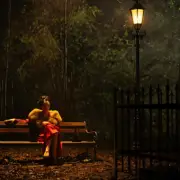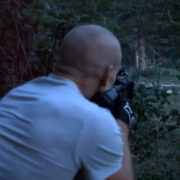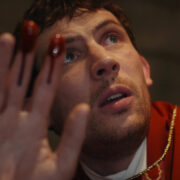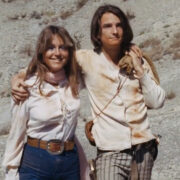Staff Inquiry: The Best Horror Films of the 21st Century (So Far)

Film critic, Ithaca College and University of St Andrews graduate,…
It’s October once again, and to celebrate the spookiest month of the year, we’ve asked our writers to shout out the best horror titles of the 21st century so far. These are recent works, released in or after the year 2000, that have chilled us, thrilled us, or downright terrified us.
The century so far has been marked by some interesting styles — most notably, Elevated Horror, which uses horror and monsters as metaphors for trauma, racism, and all manner of other societal ills and which we will definitely touch on more below. Alongside Elevated Horror, the century has also seen the resurgence of Prestige Horror, reminding us that this hallowed genre was once the domain of cinema titans like Stanley Kubrick and Alfred Hitchcock.
International horror (i.e. horror films produced outside of America and the U.K.) has also blown up this century, with feel-bad movies ranging from the French Haute Tension to Austria’s Goodnight Mommy captivating audiences worldwide. Sometimes, these have led to their own subgenres, like the New French Extremity movement led by luminaries like Julia Ducournau, Coralie Fargeat, and Gaspar Noé or the Greek Weird Wave, distilled most clearly in the offbeat but suspenseful works of Yorgos Lanthimos.
Old horror franchises have also been refreshed for the present day, and we’ve gotten delightfully high-budget remakes of everything from Halloween to Scream with the best ironic meta-jokes Hollywood screenwriters can cook up and the best splattery effects and CGI money can buy. Horror has become ever more diversified in the 2000s, 2010s, and 2020s, with major new Black, Middle Eastern, and Asian voices as well as trans and female directors, a welcome changeup compared to the white male milieu that’s dominated horror for the 20th century.
Whatever your horror tastes may be, chances are we’ve got you covered in our list. Without further ado, here are the films our writers and editors voted on as the best horror films of the 21st century (so far).
American Psycho (2000) — Faisal Al-Jadir
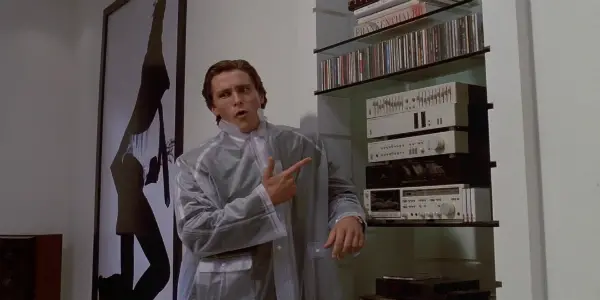
I really don’t understand yuppie culture. I think that’s one reason why Mary Harron’s masterpiece American Psycho remains an eternal nightmarish experience. Adapted from Bret Easton Ellis’ novel, the film follows Patrick Bateman (Christian Bale), a wealthy investment banker in New York City, as he balances social obligations with mayhem and murder. Addicted to sex, obsessed with fitness and skincare, and jealous of his contemporaries, Bateman unleashes his monstrous tendencies on the homeless, sex workers, and even his colleague, Paul Allen (Jared Leto). All the while, Bateman becomes his own audience and ponders the idea of “Patrick Bateman” as a separate entity… of sorts.
He’s a crazy piece of shit. Christian Bale plays him so well, you’d think he was enjoying every inch of his character’s twisted psyche. There’s something undeniably fascinating about watching this guy reveling in his excesses, while trying to figure out where he’s going with it. I don’t think he has a method to his madness, nor does he have anything to say about it. A rich sadist who is classist, racist, sexist and gets away with murder is all the more horrifying. However, it’s not just Bateman that’s the problem. It’s the society that surrounds him.
The excellent filmmaking may raise some questions over the legitimacy of the events, given the subjective reality Patrick exists in. Is it all in Bateman’s mind, or has he actually committed these atrocities? Either way, he’s a problematic individual and needs help. Yet, and perhaps unwittingly, he also seems to be protected by the overclass, who would rather live in willful ignorance as to who Bateman really is. Elevated by stark cinematography and refreshingly ambiguous direction, American Psycho is a rich horror-satire that ponders the humanity of those who look down on us as we wonder if they ever look within.” –Faisal Al-Jadir
Honorable mentions:
Kill List (2011)
The Babadook (2014)
A Girl Walks Home Alone at Night (2014)
Titane (2021)
Censor (2021)
The Witch (2015)
House of Wax (2005) — Owen Butler
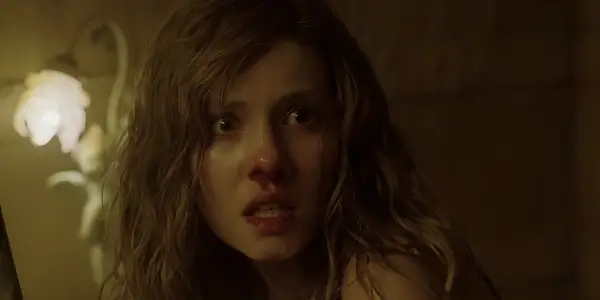
This remake of the 1953 film is a terrific mid-aughts time capsule and a fantastic slasher movie in its own right. Once the film gets going, it doesn’t let up — from its earnest embrace of slasher tropes and era-specific soundtrack, to the committed performances from its young cast (Elisha Cuthbert! Chad Michael Murray! Paris Hilton!), to the fantastic production design and makeup work, this is truly a modern classic that deserved far better than the critical reception it received upon release and fortunately has been given the re-evaluation it deserves in recent years. If you’ve slept on this gnarly flick in the two decades since its release, add it to your horror movie viewing queue this year and be ready for it to enter your annual rotation. –Owen Butler
Honorable mentions:
Trick ‘r Treat (2007)
Drag Me to Hell (2009)
Green Room (2015)
Nope (2022)
Midsommar (2019) — Lee Jutton

I’m not sure if Ari Aster’s Midsommar — a modern folk horror soaked in sunshine and blood — is actually the best horror movie of the 21st century so far (that’s probably Get Out) or the scariest (that’s definitely The Descent), but it is nonetheless the one I love most. Perhaps that’s because the story involves one of the most relatable horrors of all: emotional manipulation!
Whether it’s her terrible boyfriend, Christian, passive-aggressively making her feel as though all the issues in their troubled relationship are her fault (an aspect of his character that is even more pronounced in the film’s extended director’s cut) or the members of the Hårga commune convincing her that their twisted rituals of human sacrifice will help her finally overcome her deepest grief, Dani’s mind is the terrain for some of the film’s most terrifying torments. That she has essentially lost her mind entirely by the film’s final, iconic shot can be seen as either fortunate or tragic, but one thing is for certain: Florence Pugh’s tear-streaked smile will be imprinted on my mind forever. –Lee Jutton
Martyrs (2008) — Payton McCarty-Simas

When considering what films qualify as the “best” of an era in any given genre, I’m generally attracted to options that signal a significant departure and whose influence will come to define some important aspect of that period, i.e. Scream for its meta-commentary and humor in the ’90s. Using that rubric, I was tempted to choose an example of what some are calling “shoegaze horror” for the best of this young century, something like We’re All Going to the World’s Fair or Skinamarink or Red Rooms, all of which I’ll give honorable mentions. Ultimately though, for me, the past two decades have produced one horror film that’s so singular, so misanthropic and despondent, that I can’t help but give it the top slot for the precise opposite reason: There really isn’t anything else quite like Martyrs (2008).
Written by Pascal Laugier during a bout of suicidal depression, this nihilistic meditation on the transcendent pain of martyrdom is jet black from start to finish, incorporating imagery from real-world atrocities into its paranoid, cynical tale of torture. The film is deeply impressive from a technical perspective, featuring an unsettling techno score and jaw-dropping makeup effects by Benoît Lestang (Brain Damage, Demonlover, Sade) who ended his own life before the release of the film. Both lead actresses, Morjana Alaoui and Mylène Jampanoï, deliver unforgettable, stomach-churning performances in their roles as women pushed past the brink of human endurance.
While Martyrs was quickly associated with both the New French Extremity and American “torture porn,” Laugier rejected both labels. There’s something about this film’s Catholic roots — its desperate investigations into the nature of reality, the afterlife, and femininity’s relationship to both — that gives that antisocial impulse a strange credence. Martyrs is an anti-humanist work of art not even a father could love — “It’s not a likable movie,” the director once said, “even me, myself, I hate the film.” But it’s one of the best. I’ve never felt the same watching any other film. –Payton McCarty-Simas
Possessor (2020) — Mark McPherson
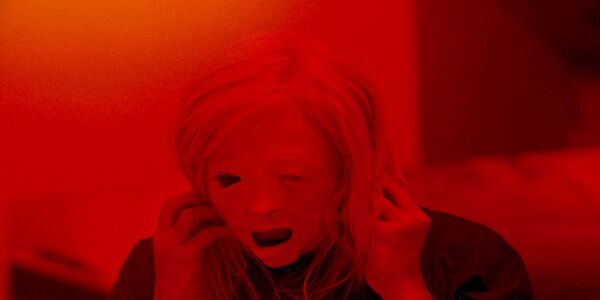
Brandon Cronenberg’s Possessor carries on his father’s legacy of body horror, speculating where our species is going with the technology that creeps into our organic forms. Andrea Riseborough plays a corporate assassin who does her dirty work by possessing the bodies of others, killing her shell when she is done with the job. Her latest murder has her inhabiting a role that starts to deteriorate her mind, making her lose sight of her true identity and lose control of the male body she is using for her assassination.
This was the most poignant horror film to debut amid the COVID-19 lockdown. Riseborough’s character’s isolation through a different body carries a sense of losing oneself in a different world, reflecting how we were locked to our avatars and profiles for everything from work to friendly meet-ups. We were trapped with no choice but to play the role with the vessel we were granted.
But what I found even more intriguing is how the film evokes the masking aspects of autism, if not very on the nose, in the scene where Riseborough forces torn-off flesh onto her face. Her male body becomes the persona she adopts for her killing, and it can’t be so easily shed when off the clock or maintained when on the job. The relatable autistic anxiety of that persistent appearance creates a far more engaging psychological horror beyond whether or not this assassin will carry out her latest mission. True to the Cronenberg brand, it’s also skin-crawlingly bloody and gory, featuring tortures and kills as juicy as the thematic contemplations of technology’s effect on our body and mind. –Mark McPherson
Get Out (2017) — Clement Tyler Obropta
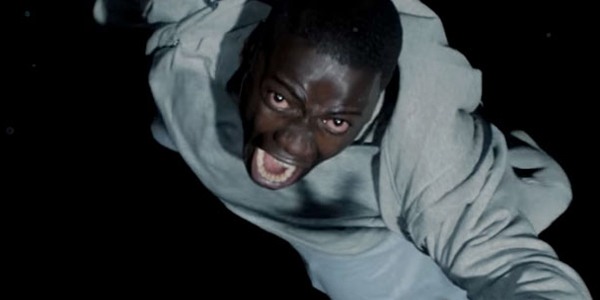
Jordan Peele was really cooking with Get Out. You know a horror film has achieved total cultural saturation when my wife — who doesn’t like horror and doesn’t live in the U.S. — has seen it. It’s hard to overstate the juggernaut that this film was when it premiered. It’s a fun, well-made, almost Hitchcockian horror movie where the jokes don’t come at the expense of the story and where the horror and comedy are both buoyed by very toothsome themes. It simultaneously elevated Peele and leading man Daniel Kaluuya to household name status while taking established stars like Allison Williams and Bradley Whitford and broadening their careers in interesting new directions.
That horror comes in many ways — the pedestrian horror of being a Black man at an otherwise all-white family gathering, the more routine horror of the creepy maid and groundskeeper, and finally the exuberant body horror of the finale. Peele executes every twist in the story perfectly — the scene where Chris is begging Rose for her keys is a standout moment in a film full of them.
Get Out came some years after the trend of Elevated Horror began — the most obvious flagship of the form likely came with The Babadook in 2014 or the A24 indie horror machine, which began in 2013. But Get Out was — and remains to this day — the most accessible and successful Elevated Horror film, a movie that keenly uses its scares, satire, and style to incisively interrogate the absurd discussion of race in America, the failings of Obama-era white liberalism, and the ways in which Black people continue to be subjugated in the country despite having been supposedly granted full citizenship under the law last century. (It’s easy to forget how recent the Civil Rights Era was.) Get Out was explosive when it released in 2017, it’s probably the best American film of its year, and it without a doubt belongs in the discussion of the best horror films of the 21st century. –Clement Tyler Obropta
Under the Skin (2013) — Linsey Satterthwaite
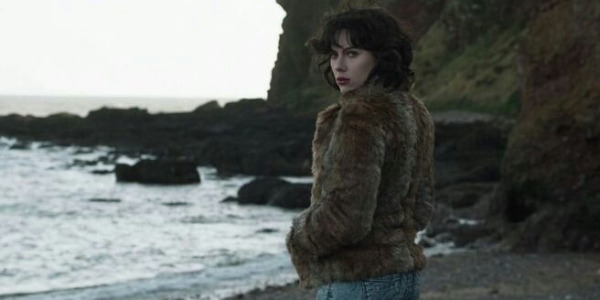
A film that is both intoxicatingly hypnotic and disturbingly cruel in equal measure, Jonathan Glazer’s third feature lives up to its title, burrowing into your subconscious and haunting your cinematic dreams after viewing.
A never-better Scarlett Johansson plays an alien in the guise of a female form, who roams the dark streets of Glasgow, hunting male prey like a different black widow to that of her Avengers character. Once she has lured her victim to a seemingly ordinary location, they are submerged into a strange black fluid that harvests their bodies. But an encounter with one of her victims sets in motion her evolution of feeling, and further dread is unveiled through her interactions with mankind.
Beating to the sound of its own bewildering drum, Under the Skin is bold, disturbing cinema, seeping with agonising tension and glacial pacing in each frame, aided by an otherworldly score by Mica Levi. One scene involving a tragedy on a beach is one of the simplest yet distressingly visceral moments of recent times, the horror that unfolds when Johansson’s alien returns later that evening still makes my stomach drop when I think about it.
And yet it is not the alien that is the true terror of this film; their actions are not informed by any understanding of humanity, but as they begin to experience more — to adapt and to be exposed to their surroundings — they become the hunted. The threat of the other unmasks the brutality of humans, and the real horror is devastatingly revealed in the final frames. –Linsey Satterthwaite
Kill List (2011, Dir. Ben Wheatley) — Jake Tropila
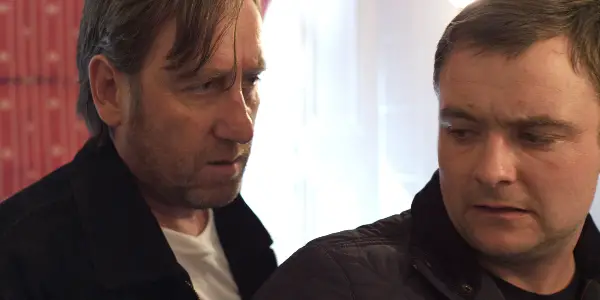
Few career pivots of the last decade have been as disappointing as that of director Ben Wheatley, whose body of work consisted of films like Sightseers and A Field in England before he effectively became a Hollywood Yes Man, having since been responsible for helming the Netflix-distributed remake of Alfred Hitchcock’s Rebecca (why?) and Jason Statham actioner Meg 2: The Trench (again, why?). Wheatley originally gained recognition for debut feature Down Terrace, which melded a narrative about a familial criminal organization with British kitchen sink realism, but it’s his sophomore effort, Kill List, that he should forever be remembered by.
Following Down Terrace’s lead, Kill List follows two soldiers-turned-contract killers, both now heading into middle age where domestic responsibilities have taken precedent in their lives. One of them, played by an unnervingly dead-eyed Neil Maskell, has been out of work for a while, falling into hard times as he is unable to provide for his wife and child. Left with no other choice, he reteams with his colleague (Michael Smiley) for one last job, with the duo accepting a trio of targets designated for elimination by a shadowy organization. What should be a seemingly standard operation quickly unravels into something much darker, as both men find themselves consumed by the abyssal nature of their work.
Wheatley maintains a superb feeling of nightmarish dread throughout, building to a terrifying climax where everything goes off the rails. Potent, masterful, and brutal (the murders in particular are stomach-churning), Kill List posits a world where one gradually loses control before the inevitable reality hits: You were never in control in the first place. –Jake Tropila
Does content like this matter to you?
Become a Member and support film journalism. Unlock access to all of Film Inquiry`s great articles. Join a community of like-minded readers who are passionate about cinema - get access to our private members Network, give back to independent filmmakers, and more.
Film critic, Ithaca College and University of St Andrews graduate, head of the "Paddington 2" fan club.

